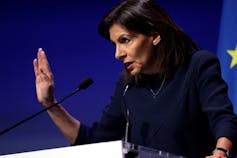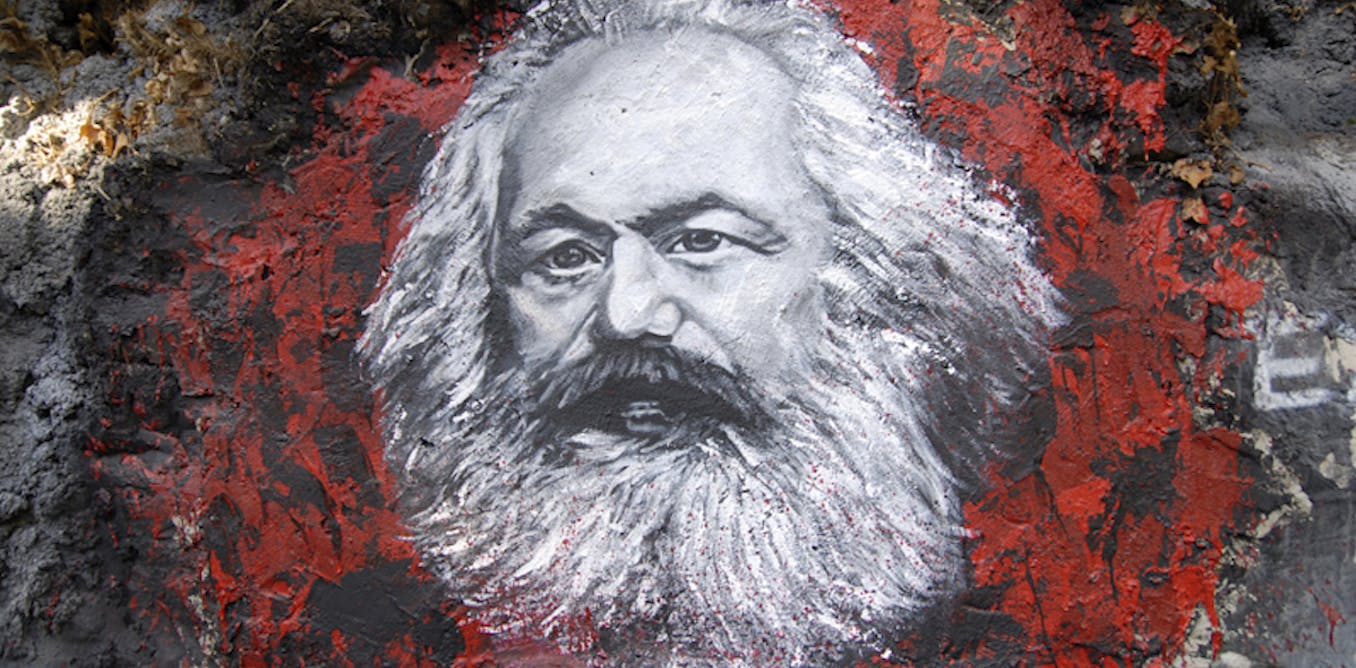The frequent assertion that international issues have little influence on national elections is today weakened by the international explosion provoked by the offensive launched by the Russian state on Ukrainian territory. While it is hardly relevant to draw conclusions from this now, it is common for the powers in place to emerge relatively strengthened by periods of strong instability.
It is therefore worth reaffirming that national questions are delimited by international issues, and it was from the outset in an international perspective that Marx and Engels had developed their reflections, in particular by concluding one of their most influential texts by “Proletarians of all countries unite” (communist party manifesto1848).
It is from their thinking that we are going to try to give keys to understanding the moment represented by the presidential election of 2022 in France, while being careful not to conceive of it as “a dogma, but [plutôt comme] a guide to action” (Engels, Letter to Sorge1886), with the perspective of “the blossoming [du] real kingdom of freedom” (Marx, The capital1867).
“History is the history of the class struggle”
Marx’s theory can be broken down into two main axes, the economic question with an analysis of capitalism articulated around surplus value (wealth derived from exploitation) and a reflection on historical development, with the conception of social modes as transients.
This is how the methods of extracting surplus value generate social classes, and they confront each other in social relations that can question the existence of a dominant social structure at a given moment.
Alain Jocard/AFP
If none of the 12 candidates explicitly claims Marx, we can find occurrences of it in the program of Nathalie Arthaud, of Lutte Ouvrière, and in that of Philippe Poutou, of the New Anti-Capitalist Party (once each). That is to say if this figure does not seem promising for elections, and we are going to try here to shed a specific light by relying on the concepts he has developed.
 –
–Sébastien Bozon / AFP
For more than two centuries, the two principal classes which clash (poles between which are a multitude of complex configurations) are the capitalist class, owner of the capital, and thus of the means of production, and the class of the workers, owner of its workforce, elections being presented as a “thermometer” (Engels, The Origin of the Family, Private Property and the State, 1884) measuring class ratios. It is thus on the basis of these class categories that we can distinguish the organizations which present a candidate in the elections, between those which come from the mobilization of the workers, and those which are not, failing which the parties of the class capitalist.
job candidates
In the camp historically linked to the workers, we can find the candidates of the Socialist Party (first workers’ party in France, French section of the Workers’ International), of the French Communist Party (French section of the Communist International, after breaking with the PS -SFIO), La France insoumise (which mainly emerged from the PS even if it brought together other currents), LO and the NPA (both resulting from the struggle waged around Leon Trotsky to build a fourth international against the Stalinist current).
By adopting the categories of reform and revolution, the first implying compromises with capitalism, the second advocating a rupture, to qualify the discourses of these organizations, we can classify them as follows. The PS, PCF and LFI are clearly in the first category. In addition to the significant difference between the first two and the third due to the fact that the PS and the PCF have known an important practice of power, their programmatic differences relate to the extent of the compromises.
 –
–Thomas Coex/AFP
Precisely for this election, the PS, with Anne Hidalgo, does not wish to oppose capitalism and is considering a compromise approach. An example relates to working hours, a key to the history of the workers’ movement, and of which she does not wish to “modify the legal duration [mais] encourage companies that wish to do so to move towards reducing working hours”. It is not situated in an internationalist perspective but a national one, “by reaffirming in particular the role of France as a maritime power [et en] guarantee[ssant] our interests and our values vis-à-vis the “G2” United States/China”.
The PCF for its part, with Fabien Roussel, if it proposes to make certain demands aimed at improving the standard of living of salaried workers (increase in the minimum wage, repeal of recent laws on work and on unemployment insurance, week work at 32 hours…), is also in favor of maintaining capitalism, speaking out in favor of “a market economy regulated by a strategist State”.
 –
–Alain Jocard/AFP
As for LFI, with Jean-Luc Mélenchon, if it has never participated in a government, its support for capitalism remains less explicit, and transitional measures are proposed, such as the “35 hours per week”, the “restoration of the ‘ISF… a sixth week of paid holidays’ and therefore ‘proposals for a break with neoliberalism’, namely the most recent form of capitalism.
If it evokes a democratic strengthening of institutions, it does not question capitalism itself but envisages improving it, from the point of view of the workers, without however mentioning social classes, but by evoking the “people” or “citizens”. It is thus more a question of acting on the legal superstructure framing capitalism than on the infrastructure constituting social relations.
LO and the NPA have a discourse placing them rather in the second category. The candidates of these organizations, respectively Nathalie Arthaud and Philippe Poutou take up several workers’ demands such as the minimum wage at 1,800 euros net, the increase in salaries, their indexation on prices, a net reduction in working time, retirement at 60 , a sixth week of paid leave, the prohibition of layoffs… and refer to a break with capitalism: “fighting for the overthrow of capitalism” for the first; “this system is dangerous and cannot be reformed” for the second.
Capital Candidates
As for the parties of the bourgeois class, we can distinguish the candidates and organizations representing a fraction more oriented towards international competition (Valérie Pécresse for Les Républicains; Emmanuel Macron for La République en Marche), and those more withdrawn into the national field of fear. of not being up to the task in this confrontation, with the corollary of a development of xenophobia and chauvinism (Marine Le Pen for the National Rally; Éric Zemmour for Reconquête!).
The other candidates from capitalist class parties play supporting roles aimed at strengthening one of these two camps (Jean Lassalle, former UDF elected representative, for Résistons, in support of the first category; Nicolas Dupont- Aignan for Debout la France, for the second category), or one of the parties of the working class if it reaches power, in the logic of the Popular Front (Yannick Jadot, Europe Écologie-Les Verts).
Also, to take up and update categories from the Marxist tradition with regard to the political regimes that can exist in a capitalist framework, we can judge that the parties and candidates of the first category are situated between parliamentary democracy and Bonapartism, while the parties of the second part are rather between Bonapartism and Fascism.
If the elections occupy an important but not decisive role in the thought of Marx and Engels, if the categories which they developed are only used in a marginal way in this electoral campaign, it seems to us that they can be useful to provide keys to understanding the stakes of this election, through their reasoning in terms of social classes derived from theories of value and historical development.
Remains the cursor to draw between the camps is relatively unstable and shifting, because at the same time of the evolution of the social relations and the technological development, the result of these elections can be envisaged, from the Marxian point of view, like a measurement relatively vagueness of the class relationship at a given moment, knowing that it will also be influenced by a whole set of events located outside their national field.
–

